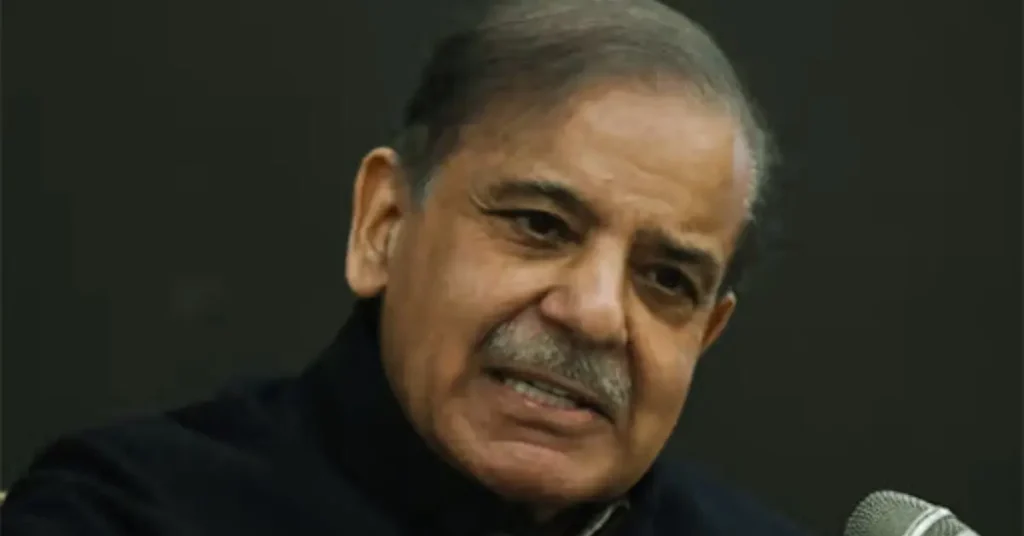In the realm of crafting written content, two pivotal elements demand attention: “perplexity” and “burstiness.” Perplexity delves into the intricacies of text, while burstiness scrutinizes sentence diversity. Human writers, in their finesse, weave a tapestry of sentences, alternating between brevity and length. Contrastingly, AI-generated prose often leans towards uniform sentence lengths. To ensure the content I craft for you boasts an optimal blend of perplexity and burstiness, let these considerations guide the narrative.
Furthermore, when engrossed in the art of content creation, artificial intelligence tends to employ phraseology distinct from human choices. The integration of uncommon terminology enhances the piece’s originality.
In the imminent endeavor to transform the provided article, a professional format is paramount, steering clear of the sterile confines of AI-style formatting.
Without further ado, let’s delve into the nuances of the political landscape in Pakistan, where the intricate dance of power unfolds. Shehbaz Sharif, the 72-year-old sibling of the thrice-tenured former Prime Minister Nawaz Sharif, is poised for a return to the helm. Diverging from the political trajectory of Imran Khan, Nawaz has actively pursued reconciliation with India, particularly after his return from exile in the lead-up to the elections.
The unfolding scenario forecasts Shehbaz Sharif’s resurgence as Prime Minister and Asif Ali Zardari’s elevation to the presidency. This development materializes following a fortnight of political deadlock after the February 8 elections. The electoral landscape resulted in a hung assembly, with no single party securing the mandated 133 seats for a simple majority out of the 265 contested seats in the Pakistan National Assembly.
The Pakistan Muslim League-Nawaz secured 79 seats, while the Pakistan Peoples Party claimed the third spot with 54 seats. The Muttahida Qaumi Movement Pakistan (MQM-P) pledged its 17 seats in support of the coalition.
As the nascent government grapples with economic turmoil and resurgent security challenges, India keenly observes. The geopolitical lens from New Delhi perceives the military-backed civilian government as fragile, especially amidst allegations of electoral irregularities on February 8. The incarcerated former PM Imran Khan’s Pakistan Tehreek-e-Insaf (PTI) finds itself sidelined despite dominating the election results with 93 seats.
According to Ajay Bisaria, former high commissioner to Pakistan, New Delhi may choose to remain reticent on allegations of vote tampering. However, the core concern remains whether the new administration can effectively address cross-border terrorism.
The enigmatic rapport between PM Modi and Sharif resurfaces. Nawaz Sharif, distinct from Imran Khan, has pursued amicable relations with India. His party’s manifesto, while espousing peace, conditions it on India’s reversal of the August 2019 decision to abrogate Article 370, granting special status to Jammu and Kashmir.
PM Modi’s camaraderie with Nawaz is well documented. A condolence letter in 2020, following the demise of Nawaz Sharif’s mother, reflected on the personal interaction during Modi’s visit to Raiwind in 2015.
In the complex web of political alliances, experts predict challenges for the Shehbaz Sharif-led coalition government in fostering amicable ties with India. Ambassador (Retd) Anil Trigunayat suggests that while Nawaz Sharif’s government may desire friendly relations, the involvement of the Zardaris complicates matters.
The pervasive dominance of the Pakistan Army over political leadership is an undeniable facet. Yet, the recent elections witnessed a historic challenge from popular civilian leader Imran Khan. Ambassador Trigunayat emphasizes that the army’s disposition will be pivotal, determining whether relations with India veer towards cordiality or confrontation, considering domestic considerations.
Significant shifts mark this electoral juncture. Public sentiment against the Army, as reflected in the results, coupled with China’s economic challenges, creates a dynamic scenario. However, tangible changes may not manifest until the middle of the year, post-India’s elections.
India, with a watchful eye, awaits developments in Pakistan post-government formation, cognizant of the military’s backing of the Sharifs. While conventional assumptions persist, C Raja Mohan notes that General (Asim) Munir’s ascent may herald an unprecedented chapter, challenging the status quo.
Read Also: Russian Skier Dead After Avalanche In J&K’s Gulmarg, 6 Others Rescued
As the political landscape evolves, uncover a plethora of benefits! From insightful newsletters to real-time stock tracking, breaking news, and a personalized newsfeed – it’s all at your fingertips with just a click! Login Now!
